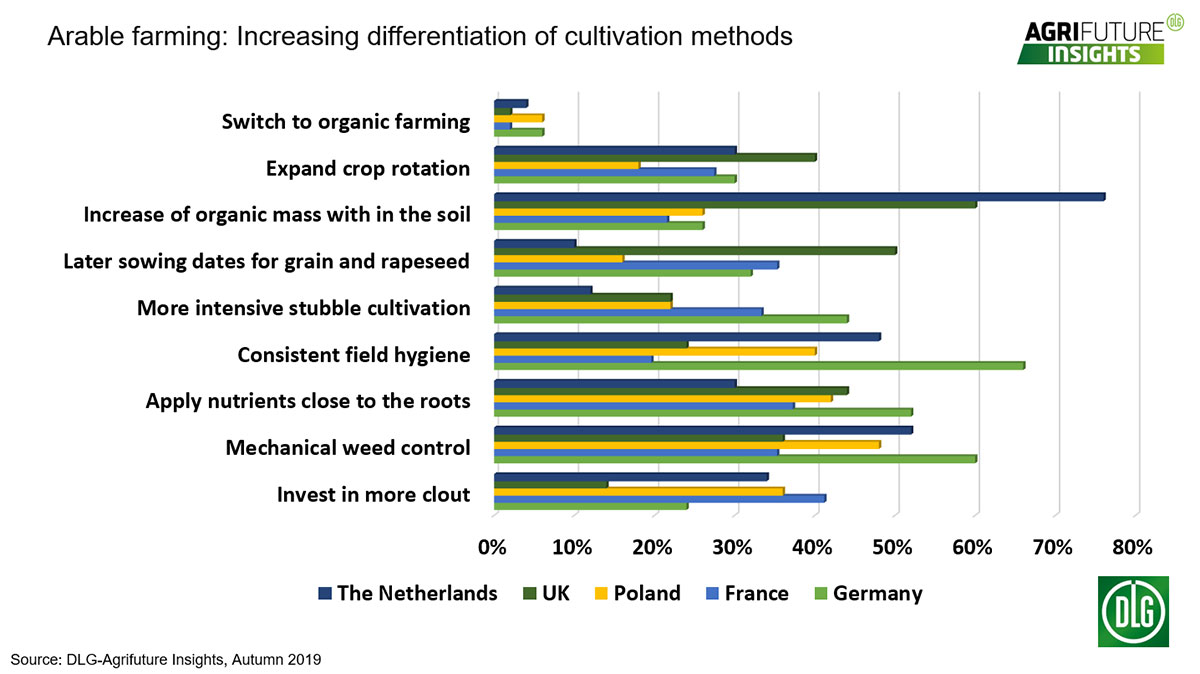Increase in differentiation of cultivation methods in arable farming
Reduction of crop protection agents, restrictions in fertilizing by the national authorities and increasing resistances – the changing framework conditions in arable farming are pushing farmers into necessary adjustments. The current graphic of the month from DLG-Agrifuture Insights shows that the market crop producers surveyed are increasingly differentiating their cultivation methods and are less and less able to fall back on viable standard concepts for successful arable farming.
Graphic of the month
Farmers in Germany are increasingly relying on the principle of “prevention instead of repair” and thus keep on expanding their toolbox in crop protection. 66% of the arable farmers surveyed want to implement consistent field hygiene and around 60% of those surveyed rely on mechanical weed control.
In The Netherlands, increasing the organic mass in the soil is one of the most important approaches, with the underlying goals being similar to Germany.
In France, on the other hand, increasing the efficiency is currently the answer of choice in order to find the optimal times for sowing, plant protection and fertilization when the time windows are narrowing.
DLG-Agrifuture Insights – a comprehensive view on agricultural development
DLG-Agrifuture Insights, which was launched to replace and extend the scope of the DLG’s Trendmonitor Europe surveys late last year, has been introduced to supply insights into the developments taking place in the world’s most important agricultural regions at a time when the international agricultural sector is changing rapidly, and technologies, markets and market relations, structures and processes are all in a state of transition.
The focus of DLG-Agrifuture Insights is on animal husbandry and crop production, machinery and equipment, management, business climate and willingness to invest, identifying the top five investment areas and prevailing policies. It helps identify current trends and to assess business climate and expectations. This helps support agribusiness companies in developing strategies in international markets, and gives entrepreneurial farmers important stimuli for developing their businesses.
The DLG-Agrifuture Insights findings are reached by questioning a global panel made up of 2,000 future-oriented farmers in 13 countries – Brazil, China, France, Germany, Great Britain, Iran, Netherlands, Poland, Russia, South Africa, Thailand, USA and Zambia. Surveys are conducted every February/March in the southern hemisphere and every August/September in the northern hemisphere, with the findings supplemented by continuous background research and regular interviews with top decision-makers.

